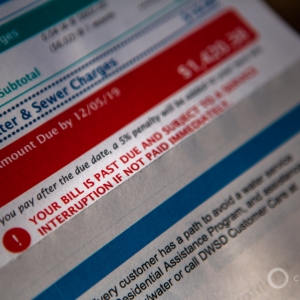The Stream, April 29, 2021: Legionella Bacteria Found In West Virginia Hospital Building
YOUR GLOBAL RUNDOWN
- Legionella bacteria were found in two sinks in a West Virginia hospital’s administrative building.
- Covid-19 patients in Venezuela are hiring doctors to come to their homes to avoid high costs and a lack of basic supplies in hospitals.
- Big banks in Turkey are reluctant to fund a major Istanbul canal over environmental concerns.
- The United Kingdom plans to cut WASH projects in developing countries significantly, a leaked memo said.
Crumbling water infrastructure in Jackson, Mississippi, highlights racial and political tension between the city and the rest of the state.
“if you drive through the city, you’re going to see all this water coming up… because the infrastructure is old and decrepit. It has not been maintained well.” – Ronnie Crudup, a bishop at New Horizon Church in Jackson, Mississippi. 60 Minutes+ reports that water infrastructure in the state capital is crumbling due to political tension and lack of investment from the Legislature. Local residents and officials attribute the tension to the racial make-up of the city, which is majority Black.
IN RECENT WATER NEWS
Federal Aid for Overdue Water Bills Is Slow to Arrive
In addition to a second round of stimulus payments, Congress included $638 million for households that were behind on their water bills. It was the first time that Congress had set aside federal funding for that purpose.
Little more than two months later, Congress doubled down on the approach, adding $500 million to what is now officially called the Low-Income Household Water Assistance Program, or LIHWAP. In total, more than $1.1 billion will be available to relieve households of water debts.
That’s where the process has slowed. As of late April, none of those funds has been allocated to states, let alone distributed to families in need. State allocations, to be set by the Department of Health and Human Services, are based on poverty levels and high housing costs.
In Case You Missed It:
Innovation in Financing Brightens WASH Galaxy – Funding for water, sanitation and hygiene starts to arrive faster, with clearer requirements.
Flooding Tells ‘Two Different Stories’ In Michigan – Climate change is revealing economic inequality.
High Costs and Lack of Basic Medical Supplies Keep Venezuelans Out of Hospitals For Covid-19 Treatment
Covid-19 patients in Venezuela are paying doctors to come into their homes for treatment because of high costs of private clinics and public hospitals that are overcrowded and lack basic supplies like oxygen and running water. Reuters reports that Venezuela’s government said the country is experiencing a second wave of the virus and is reporting around 1,000 cases per day, although experts say the true numbers could be much higher.
TODAY’S TOP WATER STORIES, TOLD IN NUMBERS
$13 BILLION
Reuters reports that big banks in Turkey are reluctant to finance an Istanbul canal due to environmental concerns and investment risks. City political leaders, engineers and citizens worry that the canal could hurt resources that supply nearly a third of Istanbul’s fresh water. The construction cost of the canal is estimated at 75 billion lira ($13 billion).
2 SINKS
Legionella bacteria were found in the water of two sinks at an administrative building in a West Virginia state-run hospital, Associated Press reports. The bacteria, which cause Legionnaires’ disease, were found during routine testing. No buildings housing patients seem to be affected, officials said, but around 30 employees were moved from the administrative building to work elsewhere.
- Why it matters: Reported cases of Legionnaires’ disease more than quadrupled between 2000 and 2015. In 2017, hospitals and nursing homes receiving federal funding were ordered to follow nationally accepted guidelines for assessing Legionella risks. But outside of the healthcare industry, there are few rules to prevent the spread of the deadly bacteria.
ON THE RADAR
A leaked memo showed that the UK plans to cut funding for water, sanitation and hygiene (WASH) projects in developing nations by more than 80 percent. The Guardian reports that the new information has sparked outrage among WASH experts, who point to sanitation and handwashing as key defenses against the coronavirus pandemic.
- Why it matters: Currently, more than 4.2 billion people lack safe sanitation and 1 in 3 people globally do not have access to safe drinking water. Still, over the last 50 years more than $400 billion has been poured into projects that are improving WASH around the world. After interviewing more than 40 thought leaders and frontline professionals on five continents, Circle of Blue found that the WASH world is at a rare inflection point. In recent years the fog has cleared and the more certain path appears to actually lead to universal access to clean water, safe sanitation and hygiene.
Jane is a Communications Associate for Circle of Blue. She writes The Stream and has covered domestic and international water issues for Circle of Blue. She is a recent graduate of Grand Valley State University, where she studied Multimedia Journalism and Women, Gender and Sexuality Studies. During her time at Grand Valley, she was the host of the Community Service Learning Center podcast Be the Change. Currently based in Grand Rapids, Michigan, Jane enjoys listening to music, reading and spending time outdoors.







Leave a Reply
Want to join the discussion?Feel free to contribute!